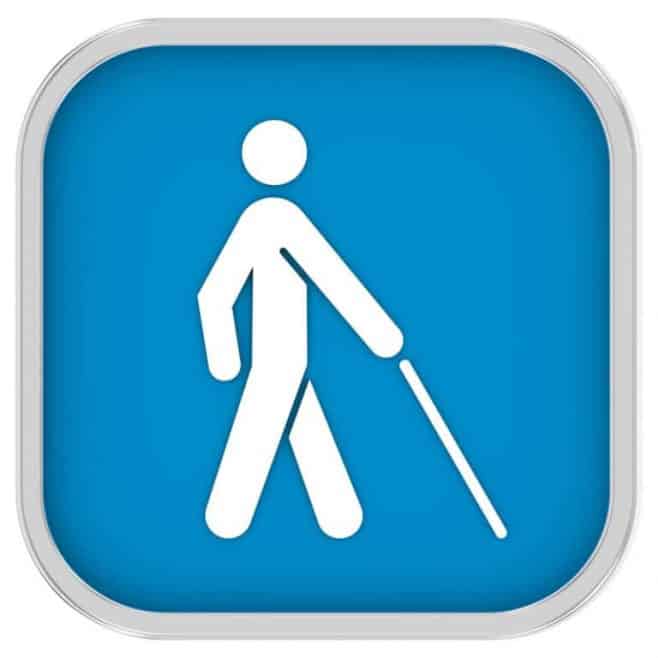
ADA Kiosk Update — ADA Legal Consequences
See our Legal News for the latest developments in law.
Original story — Article from TPGi (aka Vispero) on historical legal implications of non-compliance with accessibility. Predominantly it is a lack of accessibility for the blind which triggers the legal action and the plaintiffs checklist seems to be
April 2021 Update — Website Accessibility — Court rules grocery store’s inaccessible website isn’t an ADA violation — The Winn-Dixie website isn’t accessible for blind users with screen readers. The two-judge majority placed a lot of weight on the fact that the ADA only applies to physical spaces. In their view, a website is not a public accommodation as the ADA defines the concept.
Explanation and analysis of the ruling by William Goren details the case and provides thoughts and predictions on where it will lead next.
Excerpt:
I agree with the dissent that this decision will make it much harder for persons with disability to prevail on their Internet accessibility claims, though the court does not create a high bar for standing. It is very unclear to me whether other Circuits will adopt this approach as it goes in a completely different direction than we have seen previously. Also, I think it likely that the Supreme Court will take this case up. What the Supreme Court will do is anybody’s guess. As I have mentioned before, people with disabilities have been very successful at the Supreme Court level outside of the employment context. For reasons mentioned in this blog entry, that success may continue with this case. If that success does continue, what we don’t know is how will the Supreme Court get there. Stay tuned. This will be a very very interesting case to follow.
Another Analysis by JDSUPRA — The Court acknowledged that Gil could state a claim for a violation of the ADA if he could show that the website constituted an “intangible barrier” to his access to the goods, services, privilege’s, or advantages of Winn Dixie’s physical stores, but found that Winn Dixie’s website did not present such a barrier.
- Picking up prescriptions is still physical — In the Eleventh Circuit, to establish a violation of the ADA based on an inaccessible website, a plaintiff must show that the inaccessibility of the website prevented him or her from accessing the goods, services, privileges, or advantages of a physical place of public accommodation.
- You can file in different court — thus we do not believe this decision will have much impact on the number of website accessibility lawsuits filed.
- the likelihood of the U.S. Supreme Court taking up this issue has certainly increased now that there is a conflict between the Eleventh Circuit and the Ninth Circuit
- Editors Note: The Winn-Dixie website offers delivery and pickup services and takes the order online. How does the court rebut that?
Also updated Coca Cola information — Department of Justice’s Amicus Brief in Magee v. Coca Cola Refreshments and Brief’s Impact on Title III Web Site Accessibility Litigation
Excerpt:
About a year ago, I discussed on my blog the case of MaGee v. Coca-Cola Refreshments USA, Inc., a published decision from the Fifth Circuit, holding that a vending machine was not a place of public accommodation and therefore, Coca-Cola’s machines did not have to comply with the ADA. The case was appealed to the United States Supreme Court, and the United States Supreme Court asked the Department of Justice to weigh in on whether it should grant certiorari. The Department of Justice has now weighed in. That brief bears looking at because it also suggests how the Department of Justice might react to website accessibility lawsuits under title III of the ADA. The brief is divided into the categories of highlights and takeaways. The reader, of course, is free to focus on either or both of the categories.
Original article from TPGi and Laura Miller with Vispero March 2021
Editor Note: Article from TPGi (aka Vispero) on historical legal implications of non-compliance with accessibility. Predominantly it is a lack of accessibility for the blind which triggers the legal action and the plaintiffs checklist seems to be:
- Is there audio
- Any tactile indicators for blind
The main qualifier being can a blind user operate and conduct transaction.
Excerpt: Why should you consider kiosk accessibility in your kiosk project? There are many reasons to make your kiosk project accessible. One reason to make a kiosk accessible to serve a larger group of customers and users. Another reason to work kiosk accessibility into a project is to avoid litigation and costly settlements.
The list mostly centers on plaintiffs being blind and includes (with comments):
- 2012 – Redbox. – audio and tactility resolution. California. 1.2M
- 2017 – Eatsa. Used an iPad. Screen reader, tactile keyboard and headphone added. California.
- 2018 – Walmart and self-checkout systems. This was cashback via employee situation (same as Aldi in 2020) – audio and tactility resolution
- 2016 – Coinstar Coin Exchange kiosks – audio and tactility resolution
- 2020 – Health Screening Kiosks — this is in progress. — lack of tactile navigation
- 2018 — Applebee agreed to changes in tabletop kiosk — not sure
- 2015 — Touchscreens on Coca Cola dispensing machine Freestyle. Interesting that the court found employee assistance was acceptable alternative. Also, the machines were in McDonalds and required of the franchisees. It is the franchisees that get sued, not McDonalds, Dicarlo v McDonalds. More on Leagle
- 2016 – Panera and iPad. Settled. – audio and tactility resolution
- 2016 — Pursuant Health This involved audio and adding “hot spots” to the touchscreen. Could have been haptic?
- 2016 — LinkNYC – NFB Suit — many changes. Improved screen navigation, dedicated short cut key to request assistance, and an updated screenreader/text-to-speech engine.
- University of Montana
- 2011 – JetBlue — this is a case where the plaintiffs actually lost (appealed) – Pervasive used as argument — only airline websites and kiosks — The lower court ruled that California state law protecting the civil rights of persons with disabilities does not apply to airline websites and kiosks. The court’s ruling only applies to airline websites and kiosks, and does not affect legal advocacy efforts seeking access to other websites or kiosks.
- Winter 2017 Various point of sale terminals nice aggregation of accessibility related incidents
For the full article see TPGi and Laura Miller with Vispero March 2021
For further reading here is fascinating reading excerpt from the Various Point of Sales
Websites, Kiosks, and Other Self-Service Equipment in Franchising: Legal Pitfalls Posed by Title III of the Americans with Disabilities Act Minh N. Vu and Julia N. Sarnoff
In 2015, blind plaintiffs represented by the same firm brought three separate class actions in the U.S. District Court for the Southern District of New York against Moe’s, Walgreens, and Five Guys for having inaccessible drink dispensers (the Freestyle machine) in their establishments.110
Although the specific restaurant locations identified in the Moe’s and the Five Guys complaints were franchises, the plaintiffs did not name the franchisees as defendants in the lawsuits. Instead, the plaintiffs based their claims on Moe’s and Five Guys’ alleged nationwide policies for installing Freestyle machines at all of their restaurant locations, whether franchised or not, and argued that these dispensers should have had technology to allow the plaintiffs to use the machines independently. In the first case to be decided, the district court held that “under the ADA, effective assistance from Moe’s employees acting as ‘qualified readers’ is sufficient” and that the restaurant was not obligated to provide blind accessible drink dispensers.111 The court also held that the restaurant’s failure to provide assistance on one occasion was an isolated incident that could not be the basis for an ADA claim.112 The court said that to state a claim that Moe’s failed to adopt policies and procedures to provide assistance to blind customers, the plaintiff would have had to allege that he did not receive assistance on multiple occasions.113
Undeterred, the same plaintiffs in May 2016 filed a class action lawsuit against McDonald’s Corporation and several franchisees alleging that the Freestyle machines are not accessible and that the restaurants failed to provide effective assistance to them on many occasions. 114 After McDonald’s filed a motion for judgment on the pleadings in May 2016,115 the plaintiffs voluntarily dismissed the lawsuit without prejudice even though no settlement was reached.116 The Freestyle machine cases illustrate that franchisors can face potential
ADA Title III liability at franchisee locations when their brand standards require franchisees to use of inaccessible customer-facing EIT. Depending on their franchise agreements, franchisees may look to franchisors for indemnification for such ADA liability. Consequently, franchisors should carefully consider accessibility when developing such EIT for use in their franchised systems. Manufacturers of customer-facing EIT cannot be expected to consider accessibility because they are not public accommodations and have no liability under Title III of the ADA. Case in point: vending-machine manufacturer Coca-Cola in 2016 defeated an ADA Title III class action lawsuit about its drink vending machine, which is not accessible to blind users. The Fifth Circuit upheld the district court’s dismissal of the lawsuit, holding that the vending machine itself is not a “place of public accommodation.”117
The plaintiff had argued that the vending machine is a “sales establishment” that would place it within the statute’s definition of a “place of public accommodation.” The Fifth Circuit disagreed, finding that the term “establishment” includes “not only a business but also the physical space it occupies.”118 The court did note, however, that having an inaccessible vending machine could have legal implications for the owners and operators of the space in which the vending machine are located because that space could be a place of public accommodation.119 The plaintiffs have petitioned the U.S. Supreme Court for review.120
Other types of self-service kiosks have been the subjects of lawsuits as well. In 2015, a blind plaintiff sued Sears for having price scanners in its stores that are not accessible to the blind.121 That case resolved very quickly with no judicial determination or guidance because the parties agreed to settle the case without litigation.122 In 2016, blind plaintiffs sued Panera for having iPad touchscreen kiosks for self-ordering in cafes that were allegedly not accessible to the blind.123 That case also settled quickly, once again without providing us with more insight into the public accommodations requirements courts may seek to impose.
2015), ECF No. 1; Complaint, Dicarlo v. Walgreens Boot Alliance, Inc., No. 15-CV-2919-JPO (S.D.N.Y. Apr. 15, 2015), ECF No. 1; Complaint, West v. Five Guys Enters., LLC,1:15-CV-02845 (S.D.N.Y. Apr. 13, 2015), ECF No.
111. West v. Moe’s Franchisor, LLC, No. 15-CV-2846, 2015 WL 8484567, at *3 (S.D.N.Y.Dec. 9, 2015).
112. Id. at *4.
113. Id. The dismissal of plaintiffs’ claims in West v. Moe’s Franchisor, LLC quickly led to the dismissal of the two other Freestyle cases brought in the Southern District of New York. See Dicarlo v. Walgreens Boot Alliance, Inc., No. 15-CV-2919-JPO, 2016 WL 482982 (S.D.N.Y. Feb. 5, 2016) (granting defendant’s motion to dismiss, relying on West v. Moe’s Franchisor,LLC); West v. Five Guys Enters., LLC, No. 1:15-CV-02845, 2016 WL 482981 (S.D.N.Y.Feb. 5, 2016) (same).
114. Complaint, Dicarlo v. McDonald’s Corp., No. 1:15-cv-02273-ALC-BCM (S.D.N.Y.Mar. 26, 2015), ECF No.
115. Defendant’s Notice of Motion and Memorandum of Law in Support of Judgment on the Pleadings, Dicarlo v. McDonald’s Corp., No. 1:15-cv-02273-ALC-BCM (S.D.N.Y. May 24, 2016), ECF Nos. 57–58.
116. Stipulation of Voluntary Dismissal, Dicarlo v. McDonald’s Corp., No. 1:15-cv-02273-ALC-BCM (S.D.N.Y. June 9, 2016), ECF No. 63.




